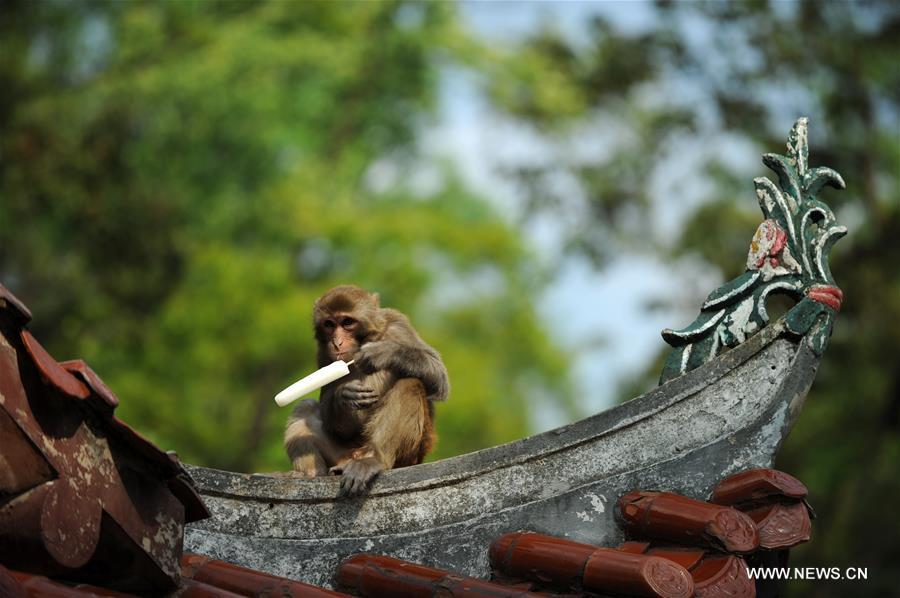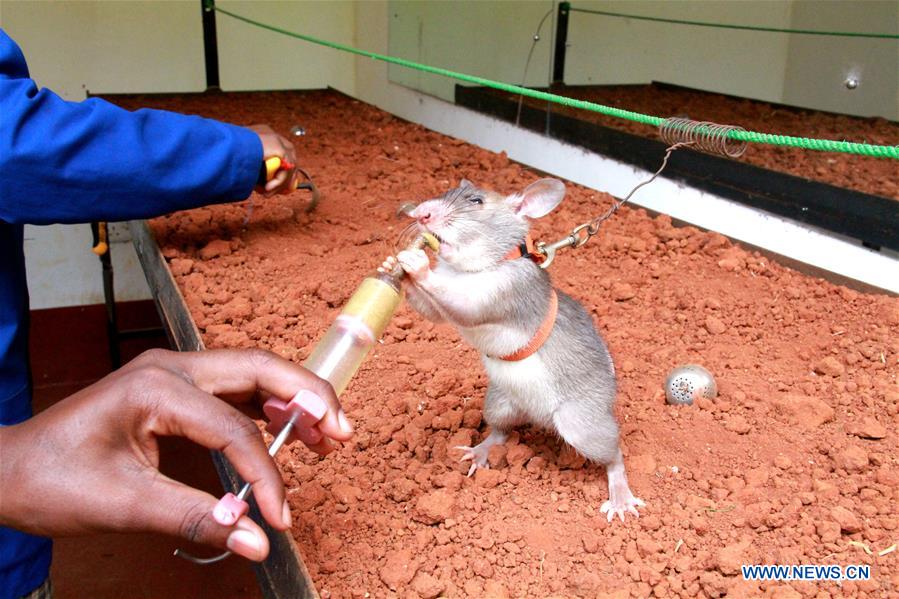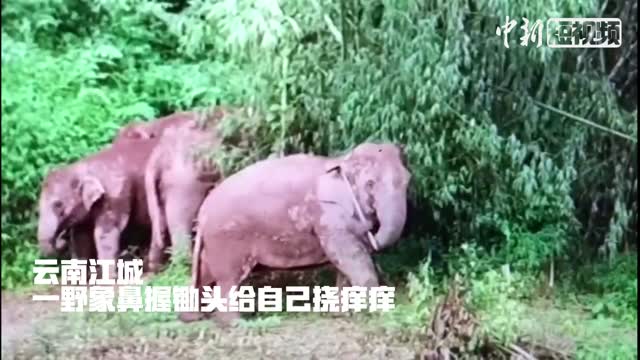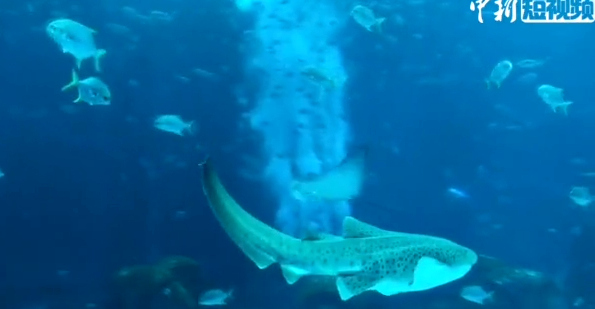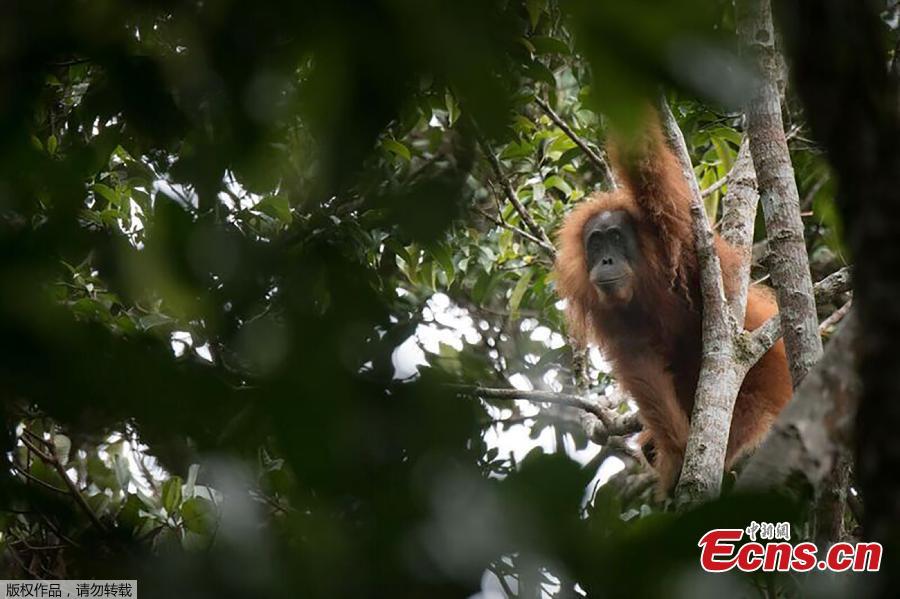
A photo of Pongo tapanuliensis. A remote population of frizzy-haired orangutans on the Indonesian island of Sumatra seems to be a new species of primate, scientists say. But the newest member of the family tree of advanced animals that include humans may not be around much longer. Their numbers are so small, and their habitat so fragmented, that they are in danger of going extinct, say the scientists who studied them. A study published Thursday in the journal Current Biology said there are no more than 800 of the primates, which researchers named Pongo tapanuliensis, making it the most endangered great ape species. (Photo/Agencies)
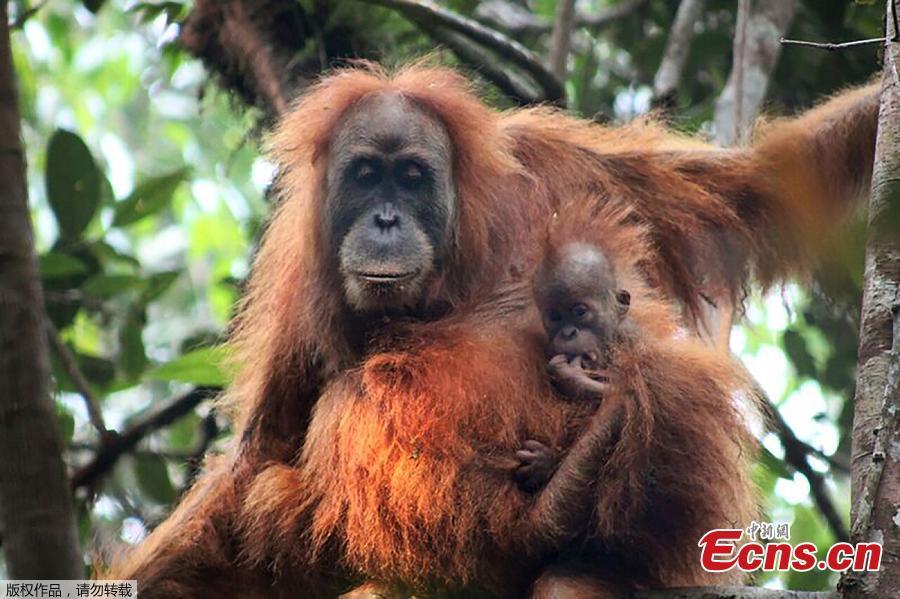
A photo of Pongo tapanuliensis. A remote population of frizzy-haired orangutans on the Indonesian island of Sumatra seems to be a new species of primate, scientists say. But the newest member of the family tree of advanced animals that include humans may not be around much longer. Their numbers are so small, and their habitat so fragmented, that they are in danger of going extinct, say the scientists who studied them. A study published Thursday in the journal Current Biology said there are no more than 800 of the primates, which researchers named Pongo tapanuliensis, making it the most endangered great ape species. (Photo/Agencies)
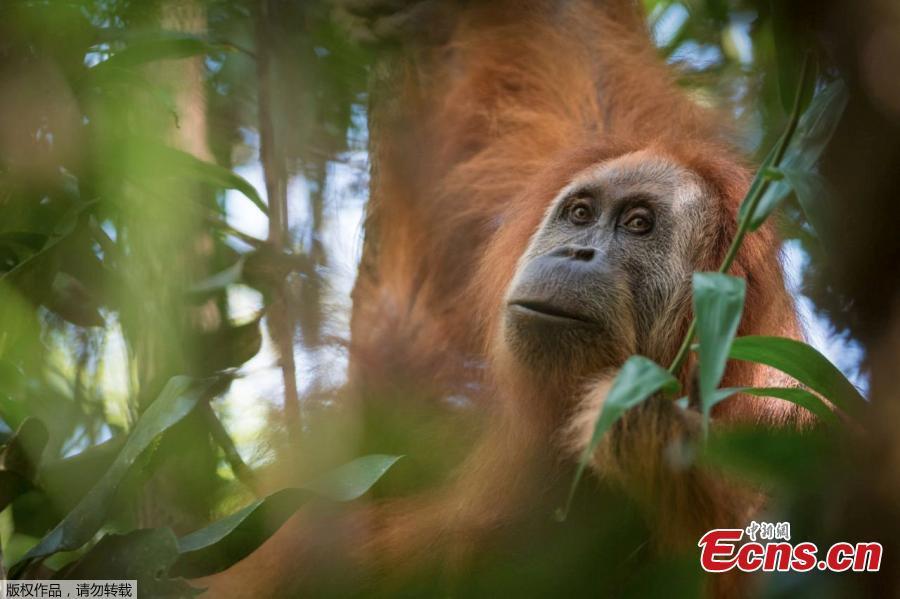
A photo of Pongo tapanuliensis. A remote population of frizzy-haired orangutans on the Indonesian island of Sumatra seems to be a new species of primate, scientists say. But the newest member of the family tree of advanced animals that include humans may not be around much longer. Their numbers are so small, and their habitat so fragmented, that they are in danger of going extinct, say the scientists who studied them. A study published Thursday in the journal Current Biology said there are no more than 800 of the primates, which researchers named Pongo tapanuliensis, making it the most endangered great ape species. (Photo/Agencies)
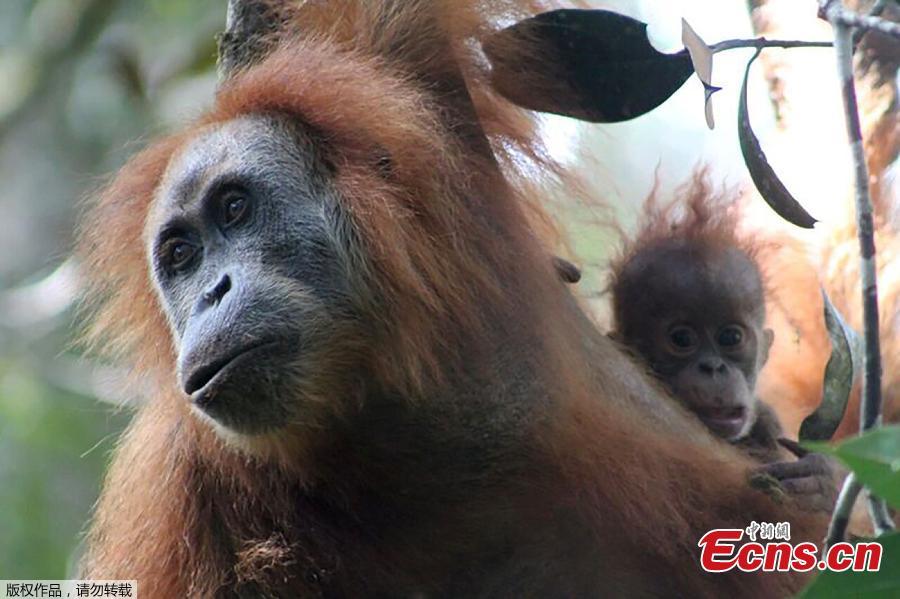
A photo of Pongo tapanuliensis. A remote population of frizzy-haired orangutans on the Indonesian island of Sumatra seems to be a new species of primate, scientists say. But the newest member of the family tree of advanced animals that include humans may not be around much longer. Their numbers are so small, and their habitat so fragmented, that they are in danger of going extinct, say the scientists who studied them. A study published Thursday in the journal Current Biology said there are no more than 800 of the primates, which researchers named Pongo tapanuliensis, making it the most endangered great ape species. (Photo/Agencies)








